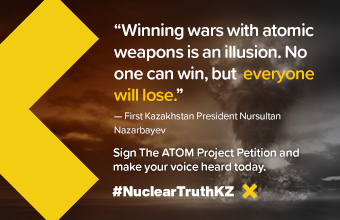From Rules to Rulers: How Personalist Power Politics Is Squeezing Middle Powers
For three decades after the Cold War, many governments behaved as if the “rules-based order” were a durable infrastructure: imperfect, selective, often hypocritical – but still an infrastructure. It set expectations about trade, borders, sanctions, alliance commitments, and the legitimacy of institutions. That baseline is eroding, and not only because revisionist powers reject it. It…
Kazakhstan’s Staged Reforms: Democracy by Evolution, Not Revolution
Democracy, long cherished as the ideal form of governance, is facing a crisis of confidence worldwide. A surge in populist rhetoric, intensifying political polarization, and a flood of digital disinformation are destabilizing democratic norms and institutions across continents. Paradoxically, these challenges afflict not only fragile new democracies but also traditional strongholds of democracy. Even mature…
Kazakhstan–China Relations: Model for Middle-Power Engagement in Fragmented World
For much of the post-Soviet era, Chinese influence in Central Asia was met with deep skepticism. In Kazakhstan and its neighbors, public opinion often bristled at the specter of a rising China next door. Memories of historical incursions and fears of economic domination led to wariness about Chinese investments and intentions. Yet the story of…
Pax Americana is Over – Middle Powers Must Shape What Comes Next
The post-Cold War liberal international order under U.S. leadership – often called Pax Americana – has unraveled. Notably, this collapse has not come from a new superpower displacing the United States, but largely from American retreat and self-inflicted contradictions. The net effect has been a U.S. pullback from moral and strategic leadership, leaving a vacuum…
C5+ Solution: Japan’s Minilateral Diplomacy and Central Asia’s Balancing Act
How Japan-originated C5+ format helps the least integrated region navigate global power rivalry Caught between the assertive interests of Russia and China, and the more distant but nonetheless present engagement of the European Union and the United States, the five Central Asian republics – Kazakhstan, the Kyrgyz Republic, Tajikistan, Turkmenistan, and Uzbekistan – face a…
Failure of Value-Based Politics: Implications for Central Asia
If there is one underestimated political trend that defined the global transformations of 2024, it is the erosion of value-based politics. This shift – a growing skepticism toward policies and alliances premised on shared values – has profoundly influenced international relations. Key developments such as the rise of middle powers, the conservative wave in Europe…
Understanding Kazakhstan’s Middle Power Strategy
Kazakhstan has emerged as a pivotal player in the region. Its geographical position, bordering both Russia and China, not only makes it a land bridge connecting different parts of the Eurasian continent but also serves as a buffer shielding the region from the direct influence of great power rivalry. The relative stability of Central Asia,…

